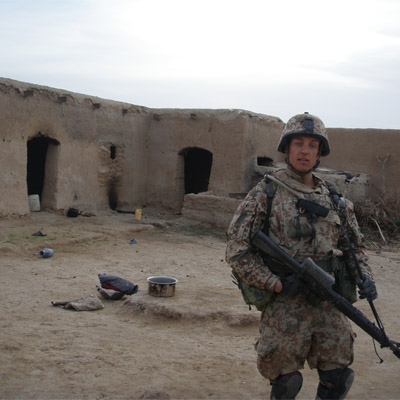In a firefight everything is chaos. Noise and dust fills the air, the enemies’ actions are unpredictable, your own life as well as that of your troops is at stake. The best combat leaders are able to navigate in chaos, face the danger, and make rational decisions under extreme pressure.

Danish officer directing mortar fire during operation operation “Panthers Claws” Helmand, Summer 2009
But I am not only talking about formal leadership. In combat everybody has some responsibility of leading: The soldier who sees the enemy must be able to react. The soldiers around him must be able to return fire and take up positions without waiting for orders. The point man’s actions sets the stage for the unit’s handling of the situation. The five characteristics are thus useful not only for the formal leader but also for the soldier on the ground. Let us have a look at them: Continue reading
